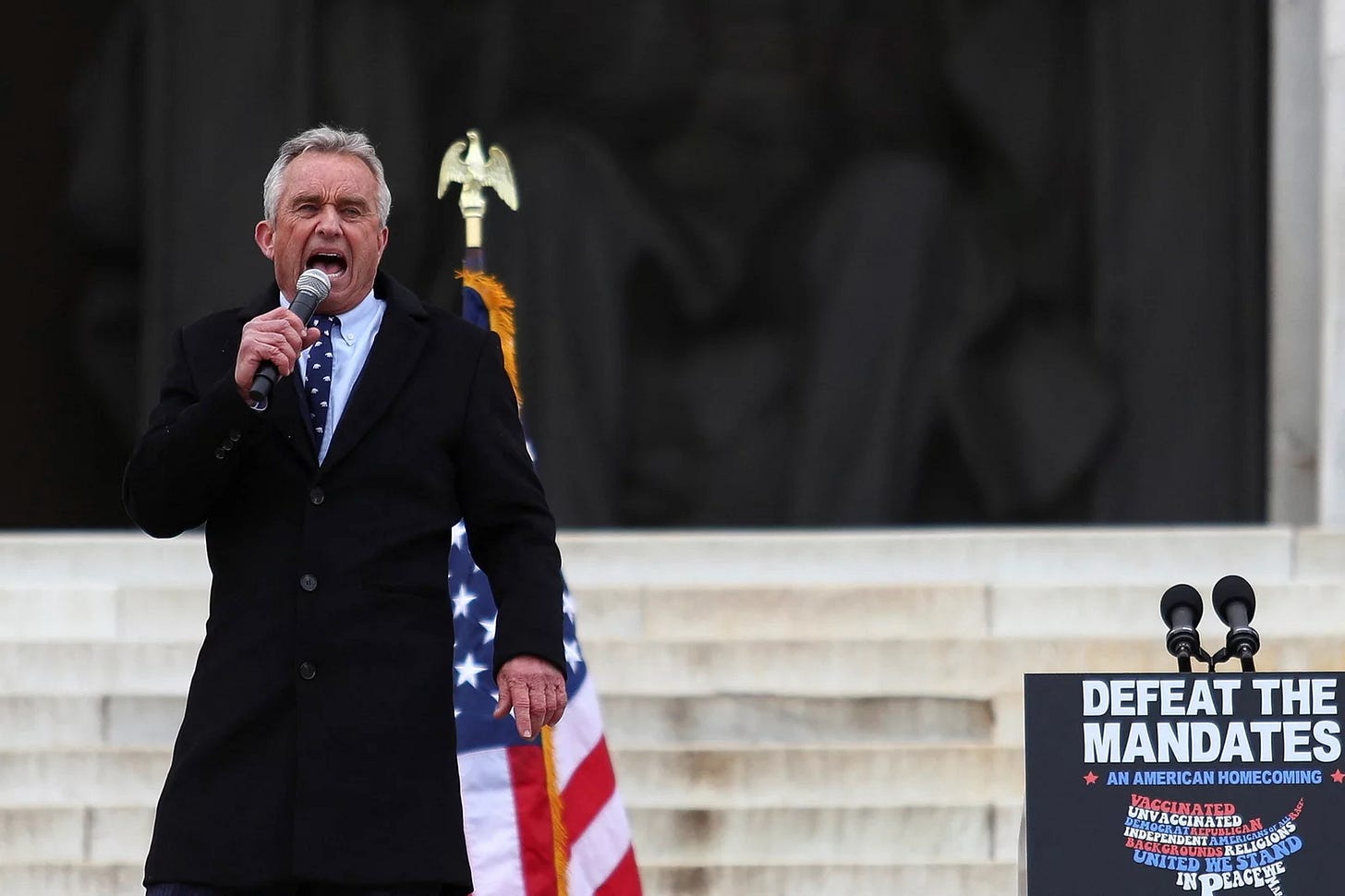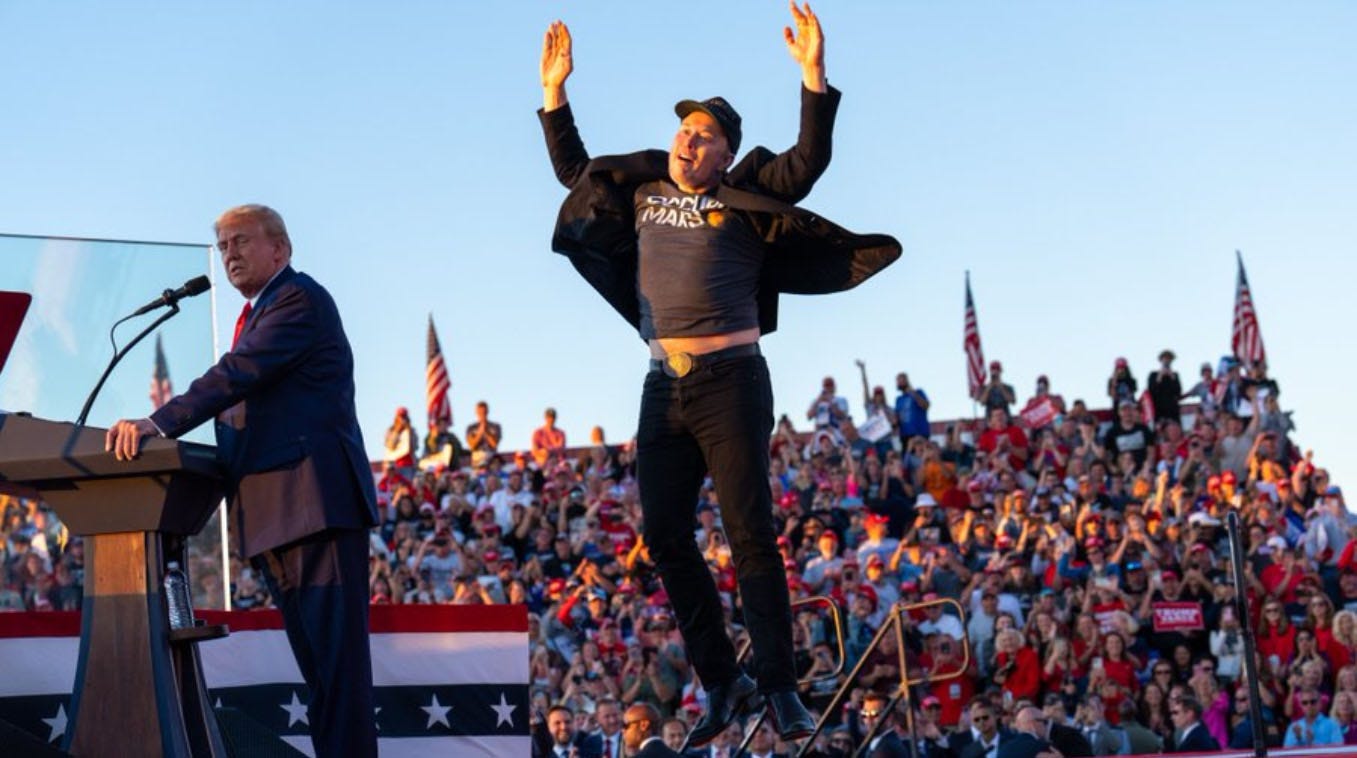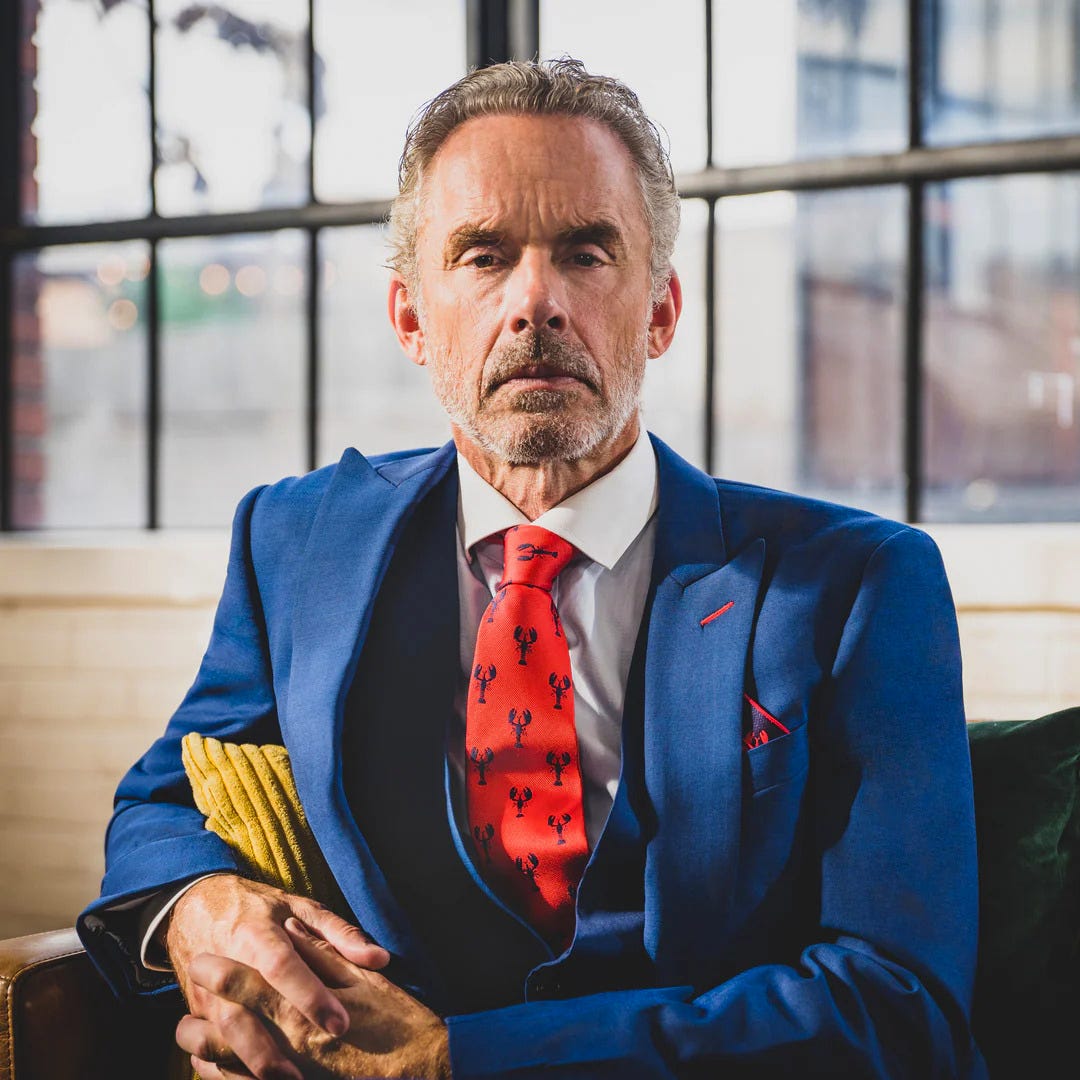TCC #50: When crackpots resonate
Why conspiracy theories thrive in a complex world
On Monday, we witnessed the culmination of a movement that has been sweeping the Western world for quite some time now.
It’s the alarming gravitation towards extreme personalities with extreme ideas.
For baffling reasons, this guy's ugly orange mug resonates with a whole lot of people.
So do this guy's health conspiracies.
And this guy's.... I don't know. Awkward jumps? Incoherent tweets? Nazi salutes?
And, one of my personal favorites, this rambling former psychology professor’s advice to make your bed and eat nothing but beef.
Yep, these guys are crackpots. Their ideas are extreme, eccentric, and dangerous.
Once upon a time, crackpots might have been largely written off as, well, crackpots.
But lately it seems that the more unhinged your ideas, the more seriously you’ll be taken. Instead of consigning these lunatics to loserdom, now we give them a platform.
But why?
Why, in today’s economic and cultural climate, with the very best of what modern science has to teach us, do we suddenly prefer the extreme and uninformed over the measured and logical?
Why will a measured and nuanced take be booed off the stage, while uninformed, one- or two-syllable chants (drill, baby, drill!) are seen as compelling?
I believe we prefer crackpots and conspiracy theories for the same reason we like stories that follow a tried and tested narrative arc.
In tough times, conspiracy theories are comforting.
They offer a simple answer to complex problems. They activate our deep need for the universal storyline, where bad forces need to be stopped by good guys like us (or good, Bible-reading guys like Trump, I guess?). Even more importantly, they lay the blame elsewhere: with people who don't look like us, or have more education than us (those infuriating elites), or whose experiences of the world don’t line up nicely with ours.
Climate change is an easy example to invoke here. Rather than admitting that our lifestyles have massively damaged our planet’s delicate ecological balance, many people find it easier to write off climate change, with its decades of scientific consensus, as a hoax. I’ll admit, it’s almost a comforting thought.
Basically, conspiracy theories are just really good stories that make us feel good (because we’re not the villains). The extreme ideas that go alongside them are like the high-fructose corn syrup of the ideas world: a complex organism distilled to its simplest, tastiest, most rewarding form. The only problem? It’s slowly killing us. The real world does not have heroes and villains, and it certainly does not follow a clear narrative arc.
Why do extreme and almost laughably absurd ideas resonate in 2025?
Probably for a couple of reasons.
One: we spend too much time online and we're saturated with online content. We only have so much brainspace, so naturally, we'll pay attention to the most shocking of the lot.
Two: we're stretched far too thin. Modern life has so many demands on our time and energy. We simply don’t have much left in the tank for anything that seems to ask too much of us.
And in a complicated world, simple stories seem profound. They just feel right. Many of us have an intuitive sense that the answers should really be quite simple. Eating right should be simple, being a good person should be pretty simple, living a good life should be simple. So when we hear conspiracy theories that make the problem — and therefore the solution — seem simple, it’s no wonder we’re compelled to believe them.
What can we do about this?
It may be futile, but I believe we have to resist overly simple explanations for complex phenomena. We must hold out against making things black and white, or thinking that the answer has to be simple. It very well may not be. Indeed — the idea that there is one true answer is probably false, especially for many of the issues dividing us today.
I know my examples here are all right-wing extremists, because they tend to be the most crackpotted of all, but the left is no stranger to extreme views — and it hardly has a reputation for inviting nuanced conversation. I believe some of the right-wing extremism we’re seeing today is coming in response to the left’s increasing intolerance of other perspectives.
We are all becoming increasingly intolerant of differing perspectives, which has basically led to the death of any actual social dialogue. Instead, we now spend our days shouting into our own echo-chambers and ridiculing the ‘other side’ (as I’m doing here), oversimplifying the other side’s arguments and reasoning (which I’m no doubt also doing here), and then dismissing it altogether.
As citizens, we need to do our best to resist oversimplified narratives and be brave enough to conduct deeper and less combative conversations.
But what about as sustainability communicators?
How do we best convey concerns about climate change, or report on sustainability performance, to an audience that prefers their ideas simple, highly refined, attention-grabbing, and consumable in under 30 seconds?
I believe simplicity can both help and harm sustainability communications.
Firstly, being overly simplistic when communicating climate action is basically textbook greenwashing. What does "eco-friendly" or "carbon-neutral" or "the greener option" mean? It's impossible for consumers to know without digging deeper, but it's simple, and it paints a pretty picture.
When sustainability communicators don't put their climate action in context and don’t provide enough detail to help people understand what’s meaningful, simplicity serves to mislead.
At the same time, making things overly complex is also a great way to mislead readers. When corporations write pages and pages of legal disclaimers, publish vague aspirational statements like “committed to transformation” or “building a better world,” or data dump emissions and other figures into dense tables with little context, they know the average reader won't bother to figure out what's really going on.
When sustainability communicators overwhelm readers with too much information, complexity also serves to mislead.
The challenge of striking a balance between nuance and simplicity — of giving our audience enough information to truly grasp the complexity of a given concern without drowning them in detail — will forever be the sustainability communicator’s challenge.
We don’t believe there is a universal prescription for getting this right. That said, a few things can make a big difference. Knowing your audience makes a big difference — customer/audience interviews and surveys are a great place to start. So too does knowing your own stuff well — having clear numbers to point to, action items, and context that demonstrates where you are now compared to where you’ve come from and where you’re headed.
Societally, we all have a lot of work to do if we want to combat the rise of extreme political and personal views, lack of nuance, and, ultimately, anti-intellectualism (more on that in a future post).
But at the very least, those of us that spend our working hours communicating complex sustainability-related topics should resist the encroachment of oversimplification.
In the allegedly simplified words of Albert Einstein, let’s make it simple — but no simpler.







Excellent — despite how incredibly alarming it is that what resonates today is what it is... it's mildly comforting to know it's merely a result of people feeling uncomfortable, fearful, and unsure of how to grapple with the world as it is today. (Though I wouldn't say it excuses it.)
Agreed on simplicity - you might be interested in this article: https://www.extinction.today/p/climate-net-zero-messaging